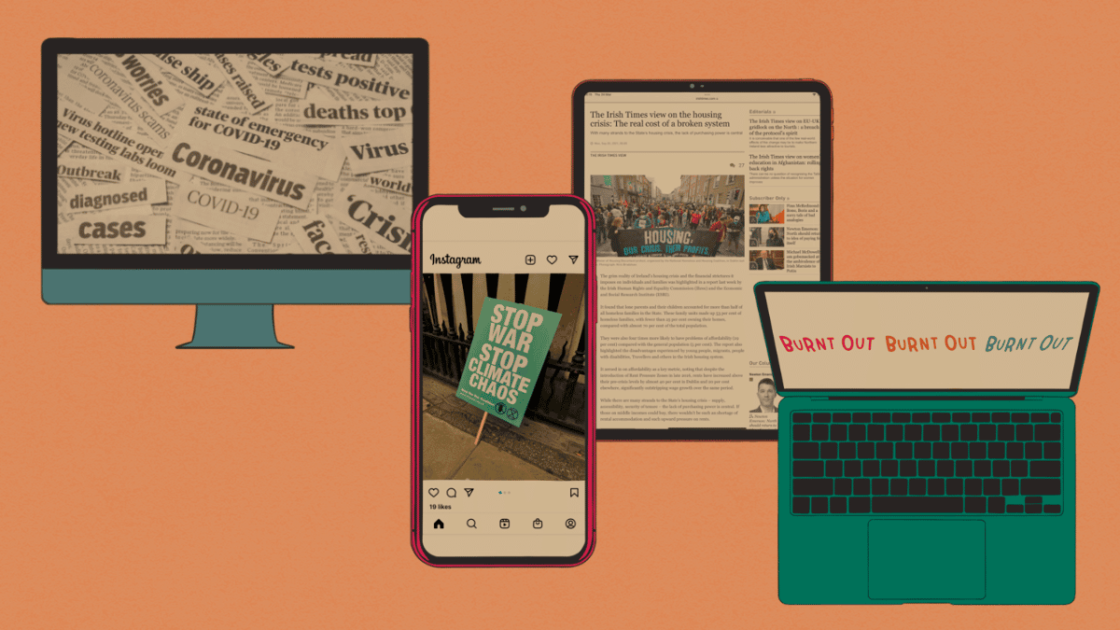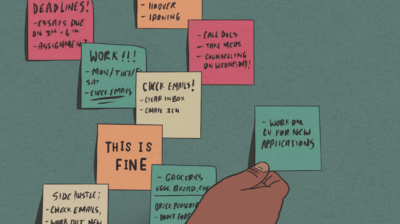Is it possible to care too much?
It is important to prioritise your own self-care when caring for others.

Being a caring and compassionate person is a wonderful thing. However, when you offer care and help to others without looking after your own needs, it can take its toll on your wellbeing. Compassion fatigue and vicarious trauma are two things that people can experience when they care for others without supporting themselves.
What is compassion fatigue?
Compassion fatigue refers to the physical, mental and emotional exhaustion that people can experience from constantly helping others, without also taking care of themselves. Compassion fatigue results in a reduced ability and interest in being empathetic for those who are suffering, or in caring for others.
What causes compassion fatigue?
Compassion fatigue shares similarities with burnout. Burnout is caused by long-term stress that is not resolved. Meanwhile, compassion fatigue is caused by caring for others who are in distress or pain without adequate care and support for yourself. Find out more about burnout.
Compassion fatigue is usually associated with people in caring roles such as doctors, nurses, therapists, carers and veterinarians. However, anyone can experience compassion fatigue, and it is not always the result of professional experiences. If others always come to you with their problems, you might experience compassion fatigue.
Global issues such as the COVID-19 pandemic, the climate crisis and the constant exposure to the suffering of others through social media and the 24/7 news cycle, can also increase your risk.
Signs of compassion fatigue
Compassion fatigue shares similar signs with burnout. People experiencing compassion fatigue also have a reduced ability to feel empathy towards others.
Some of the common signs of compassion fatigue include:
- Decreased concern and empathy for others
- Feeling burdened by the suffering of others
- Feelings of overwhelm, hopelessness, anger, sadness
- Isolating yourself
- Difficulty concentrating
- Denial
- Exhaustion or low energy
- Problems with sleeping
- Trouble disconnecting from work mentally and physically
- Increased levels of job dissatisfaction
What is vicarious trauma?
When someone repeatedly hears about or witnesses the trauma of others, they can experience something called vicarious trauma. This is also known as secondary trauma.
Experiencing vicarious trauma can lead to a shift in that persons’ worldview. This can include changes in their beliefs about themselves, their safety in the world, the kindness and trustworthiness of others and their spiritual beliefs.
What causes vicarious trauma?
Regular exposure to trauma and violence can lead to vicarious trauma. Vicarious trauma can often be a challenge for the following groups of people:
- First responders, such as firefighters, ambulance drivers and gardaí
- Medical professionals
- Counsellors or any mental health professional
- Social workers
- Lawyers
- People who work or volunteer for organisations that support trauma survivors e.g. sexual violence support services
- Human and animal rights activists
- Members of communities that currently and historically have experienced discrimination and oppression. This includes people of colour and members of the LGBTQI+ community
- People who live in areas with ongoing violence or conflict
- People experiencing economic oppression or deprivation
Anyone who is regularly in contact with survivors of trauma and can experience vicarious trauma. This can include anyone who consumes media that exposes them to the traumatic experiences of others.
Signs of vicarious trauma
With vicarious trauma, a person will experience feelings and behaviours similar to the person that experienced the traumatic event firsthand. While every experience of vicarious trauma is unique, some of the signs of vicarious trauma include:
- Feelings of grief, sadness, anxiety, anger, loneliness, irritability and hopelessness
- Feeling on edge or unsafe
- Isolating from other people
- Difficulty concentrating and remembering things
- Problems with sleeping
- Intrusive thoughts or images
- Nightmares
- Increased consumption of alcohol or other substances
- Cynicism and negativity
- A decreased sense of purpose in life
How can I prevent compassion fatigue and vicarious trauma?
Being a caring and compassionate person is a positive thing. However, if you want to stay physically, mentally and emotionally healthy, it is important to extend that care and compassion to yourself. Doing so can help you to protect yourself from compassion fatigue and vicarious trauma.
If you feel like you are constantly bombarded by distressing information, or if you’re always listening to the problems of others, you are not alone. Social media has led many of us to become constantly engaged and constantly available. However, there are things that you can do to protect yourself without removing yourself from your role or completely disconnecting from the world around you. Reading this article means you’re already taking steps to support yourself. Read on to see what other steps you might be able to take.
Make time for self-care
Prioritise self-care by ensuring you get regular movement, good quality sleep, rest and nutritious food.
Limit the media that you consume
Limit your consumption of news media and social media. Set a time of day and time limit for reading and watching this material. If there are things you find particularly difficult to read or watch, know that it is ok to unfollow them.
Set boundaries in your relationships
Decide what you are comfortable listening to and talking about and make sure other people in your life understand this. If someone is constantly telling you about things that make you upset in a way you can’t tolerate, you can tell them that you aren’t comfortable with the conversation. If someone loads all of their problems on you, you could start to set limits on how available you are. Let them know that you are very busy and suggest a day and time for a full catch up if and when you are ready to do so.
Setting boundaries in this way doesn’t mean that you are a bad friend or that you don’t care about the other person. By protecting your own wellbeing, you will be better able to support those you care about. If your friend is really struggling, there are plenty of ways to support them without putting your own wellbeing at risk.
Know that it’s ok to take a break
Recognise what is in your control and if you would benefit from taking a step back from certain things. For example, if you find that your involvement as a volunteer or activist is having a negative effect on you, think about taking a break. By taking time out, you can give yourself time to reset, and someone else the opportunity to get involved. Remember, you can always return to these things if or when you are ready to do so.
If you are constantly caring for others or witnessing trauma in your work, it might not be as easy to take a break. However, things like taking regular breaks and separating your work and home life can be beneficial. If you find your work is affecting your wellbeing, it might be a good idea to speak with your manager about what can be done. It is likely that others have felt that way too. Read more about talking to your employer about your mental health.
Seek support
If you feel that caring for others or sharing in their pain and trauma is negatively affecting you, know that you are not alone. There is support available to help you to manage and work through any difficult thoughts and feelings. Consider speaking to a trusted friend, family member, colleague or counsellor. You can also contact our free text support service 50808 to talk to a trained volunteer about your feelings:
Feeling overwhelmed and want to talk to someone?
- Get anonymous support 24/7 with our text message support service
- Connect with a trained volunteer who will listen to you, and help you to move forward feeling better
- Whatsapp us now or free-text SPUNOUT to 50808 to begin.
- Find out more about our text message support service
If you are a customer of the 48 or An Post network or cannot get through using the ‘50808’ short code please text HELLO to 086 1800 280 (standard message rates may apply). Some smaller networks do not support short codes like ‘50808’.






